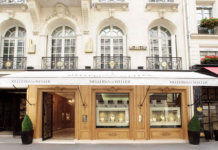Photo by Medhat Ayad from Pexels
In the 1980s, business academia popularised the concept of corporate culture. Often, these cultures were seen through the prism of a company’s social structure, norms, language, and even dress codes, as exemplified by the typical Wall Street executive that many conjure up in their minds. With the passage of time, however, corporate culture began to take on a new meaning in the broader public, fueled by the rise of Silicon Valley startups that radically redefined the workplace through perks such as “Bring Your Dog to Work Day” or free massages in the company lounge. But a company’s culture is far more than flashy benefits; it defines the very values, beliefs, and attitudes of a company as it works toward a collective vision. According to Harvard Business School Emeritus James L. Heskett, culture “can account for 20-30% of the differential in corporate performance when compared with ‘culturally unremarkable’ competitors.”
In a family business, where, in the ideal case, every characteristic, belief, and tradition of a family emanates from its members throughout the organisation, the impact of culture on long-term well-being and sustainability is even more profound. Family business members are often driven by a sense of responsibility and stewardship towards the family name, and as such, they invest not just time, money, and sweat into the business, but also the family’s most important values. These individual values, which are passed on from generation to generation, collectively define the culture that makes each family business unique and influences its everyday decisions. Among others, it affects whether a family is open to adopting new technology, how non-family employees are treated as compared to family employees, how employees treat customers and clients, and whether or not all members of the business act as brand ambassadors to the outside world. Furthermore, a family business’s culture has the power to shape its long-term strategic thinking because its success or failure in inspiring the next generation to invest into this culture can determine whether they decide to carry it on into the future.
Because culture is so vital in forming the foundation of a family business, we examine four cases of notable family firms that have successfully harnessed their unique cultural values into long-term success.
1. Merck – Culture of Governance and Transparency
Industry: Pharmaceuticals
Country: Germany
When it comes to the family business, one of the key pitfalls that it must be wary of is the potential abuse of power. Because family businesses are often under complete or majority control by members of a single family in both ownership and management, there lies a hidden danger that this power may be used to wield undue influence throughout the company whether it be nepotism or irresponsible financial management. For Merck, one of the oldest and most successful family-run pharmaceutical companies in the world, the key to overcoming these challenges lies in its culture of solid corporate governance and transparency.
Although today Merck is a massive pharmaceutical corporation, it began as a humble operation in 1668, when Friedrich Jacob Merck, an apothecary, purchased a drugstore called the “Angel Pharmacy”. But the company didn’t take off until Emanuel Merck, a direct decedent of Friedrich Jacob Merck took over in 1816 and applied his scientific education and training to the operation through the invention of Morphine. By the 1890’s, Merck had set up a tremendously successful American branch until the company was confiscated by the U.S. government following the end of WWI as retaliation against Germany. The seized firm was re-established as a separate American company while the original Merck continued to operate out of Germany. Nevertheless, the post-war era proved to be a boom period for the company as they saw remarkable double-digit sales growth year after year. This phenomenon became known as “Wirtschaftswunder”, which translates as “economic miracle”.
By the 1920’s, the Merck operation had grown from a successful family-run enterprise to a global behemoth. But rather than succumbing to the infighting or corruption that consume so many other family firms, the Mercks made a strategic decision in which it separated the company ownership from the management to ensure transparency and create a buffer that protected the business from personal ambitions and agendas.
They established a unique dual-board system whereby the management is controlled by a board consisting of predominantly non-family members while a family-only board acted in a supervisory capacity for the management board. Johannes Baillou, chairman of Merck’s holding company and a 12th generation member of the Merck family, describes this pioneering governance system as one of the key reasons for the company’s continued success in the nearly 100 years that followed. Furthermore, the family members have fostered a reputation for financial transparency and modest lifestyles by keeping their money in the company, rather than spending it on lavish personal expenses. “We save the money for future investment,” Baillou says. “For family members, there is simply no better investment than leaving all the money within the company.” Although the Merck family has gone on to make a name for itself in pharmaceuticals, it is their unique dedication to good governance that may become their biggest legacy.
2. AmorePacific – Culture of Innovation
Industry: Cosmetics
Country: South Korea
In today’s tech-driven world, much has been made about “disruption” and “innovation”, but some family companies, particularly those with a long history of success based on specialised products and services, often find it a challenge to reinvent existing business models and incorporate a sustained culture of creativity in their operations. But AmorePacific, a cosmetics company from South Korea with an 80-year-old history, has made innovation the core of its identity and exemplifies how establishing such a culture early on can set the tone for generations.
The company traces its roots back to rural 1930’s Korea, where an ambitious mother of six began a door-to-door sales operation peddling hair oils for stylish women. According to her grandson Suh Kyung-bae, the company’s current CEO, her kitchen was “a cradle of innovative technology” as she spent hours extracting camellia flowers oils. This kitchen was also where the first herbal cosmetic was designed, setting the stage for the birth of AmorePacific under her son, who went on to develop the country’s first hydration cream. Determined to push the boundaries and achieve breakthroughs, Suh established Korea’s first cosmetics research centre just one year after the end of the devastating Korean War, which quickly invented the world’s first ginseng-based cream under its premium line. A decade later, AmorePacific acquired a green tea farm and launched a range of green tea-infused products, which was then followed by the launch of its organic makeup brand Innisfree.
In the hypercompetitive Korean cosmetics market, where its consumers are the world’s third largest spenders on skin care, the company’s dedication to out-innovate competitors spawned more than 30 in-house brands, each with its own speciality and target consumer. This, in turn, has made AmorePacific incredibly popular overseas, thanks to its focus on innovative uses of natural ingredients. And even as it takes on the global market, the company continues to maintain its culture of innovation by reinvesting 3% of revenue into R&D, where 500 researchers in facilities around the world meticulously develop products for customers in different climates and regions. China, for instance, is broken down into four regions according to temperature and precipitation. “R&D has been the pillar of our growth during the past 65 years and will be the main driving force for our future sustainable prosperity,” Suh explained, underscoring the company’s philosophy of creative destruction. With such time and investment poured into research, chances are that whatever the next breakthrough in cosmetics may be, AmorePacific will have had a hand in it, demonstrating how a family’s culture of innovation in a can drive the creative spirit of a company that far outlasts its founder.
3. Cadbury – Culture of Employee Satisfaction
Industry: Candy
Country: United Kingdom
When it comes to chocolate, few others in the industry have the name recognition or can boast a continuous presence for almost 200 years. It was a Cadbury who developed milk chocolate, to the delight of chocoholics all around the world. But what may have been lost in history is the enormous impact the Cadbury’s had on modernising the industrial workplace. Not from a technological perspective but rather by introducing concepts to create more employee-friendly working conditions.
John Cadbury was born to a Quaker family in Birmingham, England where he started his own tea and coffee shop that offered cocoa drinking products. Soon, public interest in cocoa grew to the point that he opened up a cocoa factory that ultimately became a laboratory of sorts where he would experiment with variations of cocoa. In 1861, John Cadbury’s sons Richard and George took over the family business. Knowing they needed to expand their manufacturing operations, Richard and George Cadbury built a brand new factory in Bournville, just outside of Birmingham, where they began to take an interest in their employees’ welfare. Along with improved technologies, the new factory brought in new processes to improve the morale of the workers. For instance, the brothers built housing facilities that were adjacent to the factory for their employees and looked for ways such as regular outdoor breaks to keep them happy and loyal.
Cadbury also pioneered what they called the ‘suggestion scheme’, which is akin to suggestion boxes one would find in any modern workplace. “No doubt efficiency at Bournville is assisted by the suggestion scheme, not only in the pecuniary value but also in the development of the mental and creative power which makes both men and girls more efficient and valuable workers and fosters an intelligent independence,” wrote George’s eldest son Edward Cadbury. But the benefits extended to life beyond work. Young staff attended the Bournville Day Continuation College for one day a week until they were at least 18 years old, while Cadbury-funded scholarships were available on graduation. There was sick pay of up to 90% of base wage, and Workers’ Funds available for prolonged illness. The fund even paid a lump sum to the next of kin if a male worker died under the age of 65. All this in an era when many of the gains in labour were rolled back, and anti-union drives were in full force.
The Cadbury empire continued to thrive despite changing ownership over the years. In 1969 Cadbury was purchased by Schweppes and in 2010 it was acquired by Kraft Foods for a price of $19.1 billion. And although the company is no longer in family hands, the legacy that it has crafted in the world of chocolate and the workplace are sure to be remembered for the years to come.
4. Chobani – Culture of Philanthropy
Industry: Yoghurt
Country: United States
In an era when Americans are debating whether immigration and refugees are a good or a bad thing for the country, there seems to be no better success story than the tale of Hamdi Ulukaya, who immigrated from Turkey 23 years ago on a student visa with almost no money. Today, he is a billionaire who has changed American tastes with his best-selling Chobani yoghurt and is a shining example for how a smart business and a culture of philanthropy can make for a beautiful and prosperous marriage.
Chobani’s rapid rise began in a defunct old Kraft manufacturing plant in upstate New York. Having long believed that the Greek yoghurt that he grew up with could be a huge hit in his new home, Ulukaya bought the plant for just under $1 million and began the process of turning it into a Greek yoghurt factory. Now, a decade later, the company has reached $1 billion in annual sales, operates two factories with 2,000 employees, and is worth an estimated $3 billion.
Perhaps even more impressive than his business success is his track record of corporate philanthropy and inclusion. Believing that better-paid employees lead to greater productivity and corporate success, Ulukaya gave all 2,000 employees 10% of his stake in Chobani’s, resulting in an average payout of $150,000. He also instituted a six-week parental leave policy of his own accord. But it is his dedication to the philanthropic cause of helping Middle East refugees that is perhaps his greatest legacy. Since 2008, Ulukaya has been hiring refugees to work at his upstate New York plant, saying, “My background is the reason that I knew how important it is to be accepted into a new community. And I knew that it’s only possible if you get a job.” Chobani has collectively hired more than 400 refugees from around the world, earning him the position as one of Barrack Obama’s Presidential Ambassador for Global Entrepreneurship in 2014.
Today, 70% of Chobani employees are American born, and 30% are immigrants and refugees. In 2015 Ulukaya joined Bill Gates, Warren Buffet, and more in joining the Giving Pledge initiative and announced plans to donate $700 million to Kurdish refugees over his lifetime while giving $2 million for immediate relief efforts. Later that year, he visited a Syrian refugee camp and started an initiative called the Tent Foundation to help that cause. To get more CEO’s and business leaders to follow in his footsteps, Ulukaya visited the World Economic Forum in Davos, Switzerland, where he convinced Ikea, MasterCard, Airbnb, LinkedIn, Western Union and UPS to hire more refugees or provide them with free services. According to Ulukaya, “[the word ‘chobani’ means] shepherd. It’s a very beautiful word. It represents peace, giving, kindness and it meant a lot to me,” and it is clear that this passion for philanthropy exemplifies the positive impact that a family culture can have in the business and its community.














